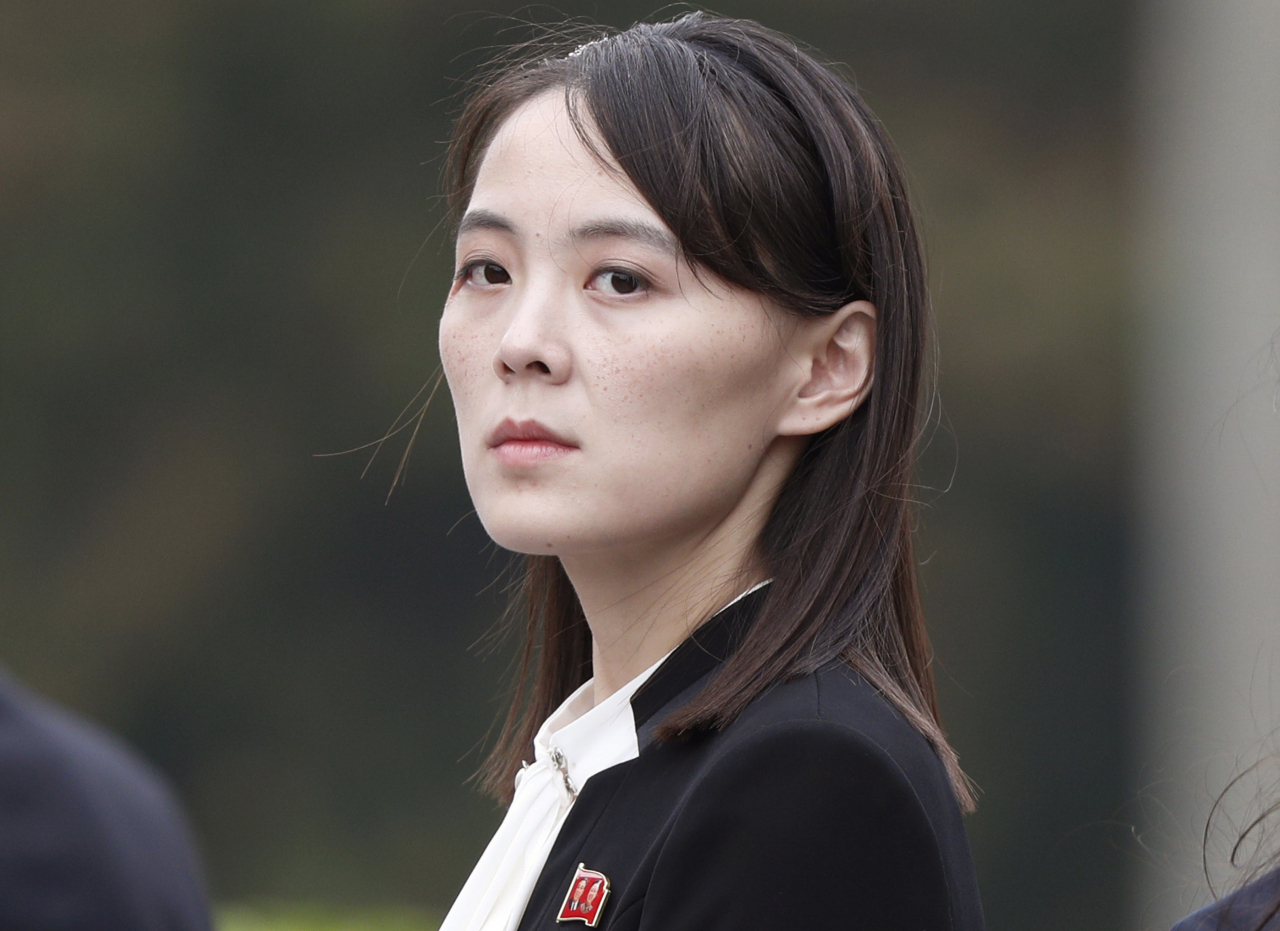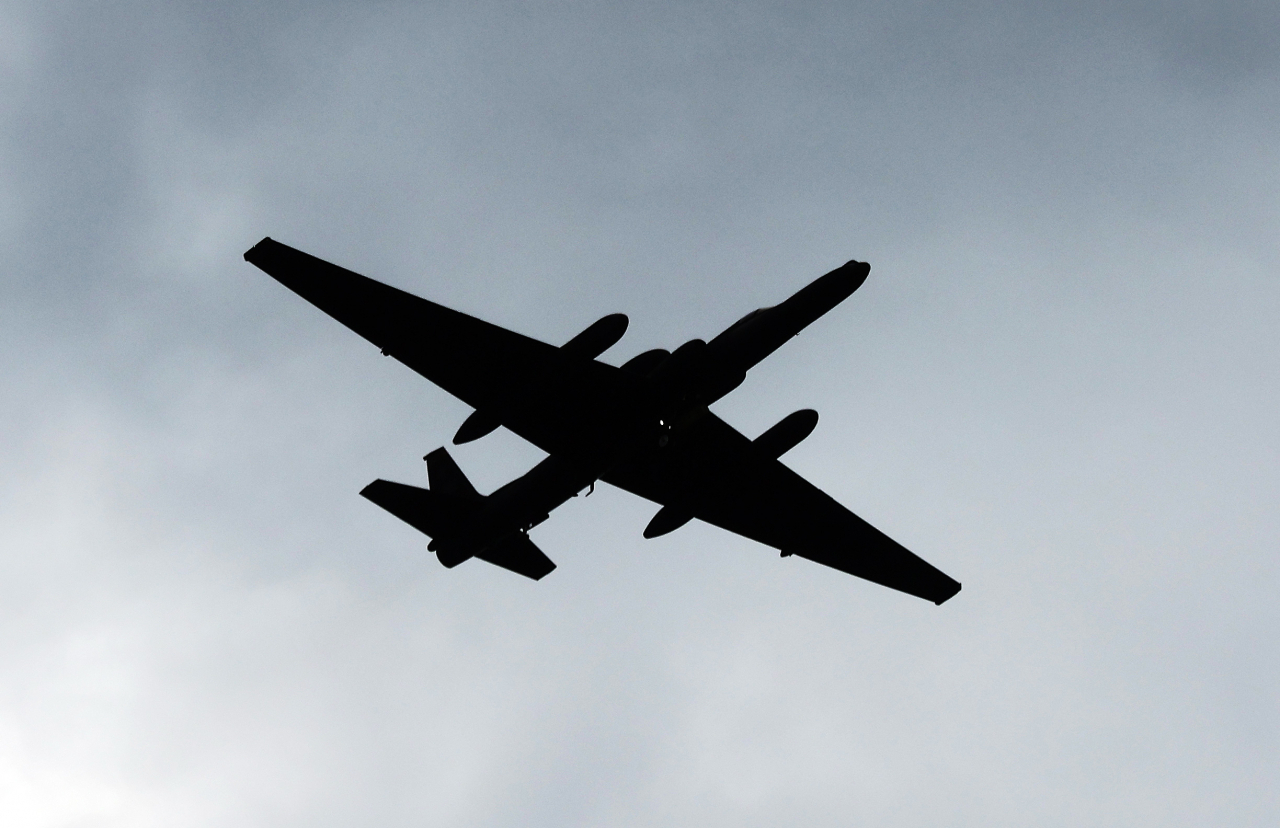Kim Yo-jong's reference to South as 'Republic of Korea' may indicate change
Change indicates N. Korea recognizing S. Korea as separate sovereign state, though as an adversary
By Ji Da-gyum, Son Ji-hyoungPublished : July 11, 2023 - 15:54

The influential sister of North Korean leader Kim Jong-un on Tuesday referred to Seoul as the "Republic of Korea," South Korea's official name, in two statements, signaling a change in its decadeslong strategy to unify the Korean Peninsula under North Korea's lead, according to observers.
The name change in Kim Yo-jong's statements -- which were issued in both Korean and English -- may indicate that Pyongyang has started to recognize Seoul as a separate state in a hostile manner, they said.
North Korea has long referred to South Korea as "south Korea" or "the south Korean puppet," as it has long claimed to be the sole legitimate government on the Korean Peninsula with the two Koreas being technically at war.
But Monday's statement over an alleged intrusion of US spy aircraft into North Korea's airspace reflects a major deviation from this tendency with the use of expressions like the "Republic of Korea's Joint Chiefs of Staff" and the "clans of the Republic of Korea."
Also on Tuesday, Kim urged the "Republic of Korea's military gang to shut their mouth" to condemn South Korea for its earlier statement defending the US spy aircraft.
The move was likely intentional, observers said.
Yang Moo-jin, professor and president of the University of North Korean Studies in Seoul, said Kim Yo-jong's mention of the Republic of Korea, or ROK, carries "significant meaning, indicating that North Korea views the inter-Korean relationship as a relationship between two sovereign states."
The 1991 Basic Agreement defined inter-Korean relations as a "special interim relationship stemming from the process toward unification," rather than a traditional relationship between separate states.
Yang also pointed out that "Kim Yo-jong's role is expected to undergo changes in line with the shift of inter-Korean relations toward a state-to-state relationship."
North Korea has occasionally used the term "Republic of Korea" in rare instances. These instances include when South Korea is quoted in third-party statements or when joint statements are issued following inter-Korean summits and talks.
"In light of recent developments, including the North Korean Foreign Ministry's statement regarding the proposed visit by Hyundai Asan and Kim Yo-jong's reference to the Republic of Korea, we will closely monitor North Korea's intentions and future actions," a senior official at the Unification Ministry, who wished to remain anonymous, said, referring to the arm of Hyundai that engages in inter-Korean projects, during a closed-door briefing.
On July 1, North Korea's Foreign Affairs Ministry blocked the access of Hyundai Group Chairwoman Hyun Jeong-eun to the country as she sought to celebrate the 20th anniversary of the death of her husband, the late Chung Mong-hun, on Mount Kumgang. Hyundai in the late 1990s took part in a joint venture with North Korea to develop Mount Kumgang as a tourist attraction, but the project collapsed due to soured relations.
The handling of Hyun's request by North Korea's Foreign Affairs Ministry was considered a rare move for the ministry, which is charged with handling affairs with what the North considers other countries. In the past, the Committee for the Peaceful Reunification of Korea, has been in charge of dealing with the relations with South Korea. However, the latter agency has remained silent since 2021 on the relationship between the two Koreas.
South Korea's Constitution does not recognize North Korea as an independent state, but its courts have sought to do so, for example in a damage suit seeking compensation for the abduction of two South Koreans who were forced into wartime labor in the North. In May, the Seoul Central District Court ruled that North Korea pay 50 million won ($38,682) each to compensate the two South Korean nationals.

Kim Yo-jong also disregarded the South Korean military's explanation that the US surveillance and reconnaissance assets have been conducting regular reconnaissance activities.
"In regards to the provocation by US forces, the military of the 'ROK' again impudently took the lead in denying the encroachment on the DPRK's sovereignty, while shamelessly asserting that it was a 'normal flight' of the ROK and the US," Kim said Tuesday. The DPRK refers to North Korea's official name, the Democratic People's Republic of Korea.
"The issue related to the relevant aerial area is the one between the Korean People's Army and the US forces. The military gangsters of the 'ROK' should stop acting impudently and shut up at once," she said.
South Korea's unification ministry on Tuesday confirmed that Kim Yo-jong's statement was the first time that North Korea has referred to South Korea as the ROK in its officially issued statements.
Kim issued her press statement around nine hours after a similar statement was delivered in her name around 9:00 p.m. on Monday.
The statement released early Tuesday specifically addresses the reconnaissance activities of the US military mentioned the previous day, but it provides additional specifics about the location and frequency of these activities.
According to Kim's claim, the US Air Force's strategic reconnaissance aircraft violated the airspace above the North Korean side's exclusive economic zone in the East Sea of the Korean Peninsula.
Specifically, the violations occurred approximately 435 kilometers east of Thongchon in Kangwon Province and about 276 km southeast of Uljin in North Kyongsang Province. Kim further stated that these violations occurred eight times, spanning from 5:15 a.m. to 1:10 p.m.
In response to Kim's statement, South Korea's Joint Chiefs of Staff on Tuesday dismissed North Korea's claims as "not worth thinking about."
"The exclusive economic zone permits freedom of navigation and overflight, and simply flying in such areas does not constitute intrusion," JCS spokesperson Col. Lee Sung-jun said in the briefing.
"North Korea's assertions, utilizing such actions as a pretext, might indicate internal motives or an accumulation of justifications for provocations," Lee said.
North Korea has repeatedly issued warnings of potential military action in response to what they perceive as routine reconnaissance activities conducted by the United States on the Korean Peninsula. These warnings were conveyed through three statements released on Monday and early Tuesday.
Kim's two statements followed an initial statement issued Monday by a spokesperson for North Korea's Ministry of National Defense. The Ministry of National Defense claimed that US spy planes, including RC-135, U-2S and RQ-4B aircraft, had conducted flights over the East and West Sea of the Korean Peninsula continuously for eight days, from July 2 to 9.
The ministry asserted that a US Air Force strategic reconnaissance plane "illegally intruded into the inviolable airspace of the DPRK over its East Sea tens of kilometers several times."




















![[Today’s K-pop] Treasure to publish magazine for debut anniversary](http://res.heraldm.com/phpwas/restmb_idxmake.php?idx=642&simg=/content/image/2024/07/26/20240726050551_0.jpg&u=)